Cats and kittens can be both fun and not so fun. They can make you angry, happy, filled with laughter or filled with tears. Below you will find a general guide on living with, and caring for, these wonderful, soft, cuddly bundles that can become quite a handful when they get mischievous. From why cats spray to why they cuddle you when you are ill. You’ll learn a lot while discovering the wonderful world of cats.

How to live with, and care for, kittens and cats
by cherylone
Learn about kittens and cats. They are wonderful, loving creatures that can wrap a person around their little paw, with a few quirks and needs that you will learn here.
You might also enjoy reading these:
Cats can be picky, demanding, lazy, independent, and dominating animals
But they seem to worm their way into the heart of anyone who has one.
Cats can look at you and immediately you know what they want.
Cats can purr and you melt. Many cat owners have spent numerous hours trapped in bed or on a chair because their cat was lying on them and they didn't want to disturb her/him. Cat’s can ruin your typing by sitting on the keyboard, or block your screen while sitting in front of you looking for pets. As a long-time cat owner, I can tell you that it isn’t easy having cats. They can sometimes drain you emotionally and physically, but they are well worth any effort. The following is a list of dos, don'ts and whys for cat owners whether you are new, or a seasoned veteran.
Let's begin with kittens and work our way up
Kittens are the cutest things in the world, well, one of the cutest anyway
However, kittens are a handful, in the literal and figurative sense. Kittens need a lot of special care until they are about three months old. If a kitten is too young to be away from their mother but their mother either can’t (mother cats sometimes suffer from infections in their milk and they can no longer feed their young-take the mother to the vet as this condition could kill her) or won’t feed it and care for it, then here are a few tips to help you be a good mother (or father) kitty.
Brand new kittens must be fed by hand
 Kittens can’t eat a whole lot, they have very small bellies. Try using an eye dropper or medicine syringe (be sure they are totally clean first) and offering the kittens warm food by the drop (warning-just like human babies, kittens can’t have milk, try the special formula for kittens; or, if desperate a little bit of baby formula will work until you can get the special kind--water it down for the first few attempts). Be sure the formula is the temperature of your own skin.
Kittens can’t eat a whole lot, they have very small bellies. Try using an eye dropper or medicine syringe (be sure they are totally clean first) and offering the kittens warm food by the drop (warning-just like human babies, kittens can’t have milk, try the special formula for kittens; or, if desperate a little bit of baby formula will work until you can get the special kind--water it down for the first few attempts). Be sure the formula is the temperature of your own skin.
Lay the kitten on his/her back (your lap has a real nice trough to set them in) and then force their mouth open (GENTLY PLEASE) and put a drop in to get them started-let go and let them swallow and then try another. After the first few, they should take it on their own. However, don’t expect them to take much. You may have to feed them every two hours depending on their age and the amount they take in. NOTE: Once they stop eating, you shouldn't try to force more food or they will get sick.
Kitten food is okay once they get a little older
Once kittens are about four weeks old, you can give them kitten food. I found the best way to get them to eat it is to mix a little of the formula with it and place it in a shallow dish. Dry cat food can be softened with the formula as well which will make it easy to eat and give the food the smell of the formula. Once Kittens are about six weeks, they should be eating on their own, but don’t give them straight dry food until they are about eight weeks because their teeth aren’t strong enough to break it up. In the wild, mother cats will eat food (generally fresh meat) and then throw it up for the kittens to eat.
Amazon has all types of cat food
 | Purina Friskies Gravy Wet Cat Food Variety Pack, Surfin’ and Turfin’ Prime Filets Favorites - (Pa...Only $31.2 |
 | 9Lives Paté Favorites Wet Cat Food Variety Pack, 5.5 Ounce (Pack of 12)Only $7.98 |
Older cats can be picky eaters and may refuse to eat certain things
Sometimes they get tired of the same food, or sometimes they just don’t want the dry stuff (or the wet stuff) anymore. Sometimes their food disagrees with them (just like us), or sometimes they need more or less of a certain thing (such as lower ash content for fixed males to avoid crystals in their urine). I find that dry is better for them because they need to chew it and it helps to keep their teeth cleaner. Wet is better if your cat is very old and/or has teeth problems. If you can’t afford wet, a good substitute is to pour dry in a small bowl and add a little warm water. Let it sit for about five minutes and then fluff like you would rice. This gives them areas to grab up the food when they eat. If you have a picky eater, once you find something they will eat, try to stick with it. Or, you can mix that food in with generic brands so it has the same flavor, but you can save money.
Kittens will also have to be taught to wash themselves
Other cats, if present, will teach the kitten to wash themselves after a bit. But, if there are no other cats around, again, you will have to be the mother/father. At first, use cleaning wipes designed for cats and clean them about three times a day, paying particular attention to their bottoms. Be sure to rub their heads gently before and after because that is a sign of mother's love. Before long, the kitten will begin cleaning themselves. Once you notice that, you can reduce the cleanings. Try twice a day and if they seem to be pretty clean (they will smell if not), reduce it to one. If they still seem pretty clean, then you can probably eliminate the daily cleanings.
Amazon has cleaning wipes for cats
 | Burt's Bees for Pets Hypoallergenic Shampoo for Cats with Shea Butter and Honey, 99.7% Natural Or... Fetch for Pets |
 | Vet's Best Waterless Cat Shampoo – No Rinse Dry Shampoo for Cats and Kittens – Gentle Foam Formul... Bramton Company Only $5.58 |
Don't fret if this takes awhile, some cats don't get it at first. In fact, I have had a cat that didn't want to bathe himself. When he got older, we put him in the tub and he loved it. We had to bathe him on occasion even after he finally learned because he would stop cleaning himself. Secretly, I think he was wanting to play in the water again.
Bathing is an option, especially if the cat got into something; however, cats are generally afraid of the water (not like the silly one named above) so let me give you a few tips on how to clean one if the need arises.
**Gather your supplies ahead of time: Two thick towels, a face cloth, gloves (optional), shampoo (baby shampoo is best because it is safe if they ingest it or you can get special animal shampoo), a small plastic cup for rinsing (disposable is best), and at least one helper.
**Make sure the water is warm, but not hot and only reaches the cat's belly.
**Draw the water in a small pan in the tub or sink (sinks are easier because you can comfortably stand at them and you have the cabinet right there).
**Lay a towel out close by to dab the cat’s eyes and mouth in case they get anything in them, and to set the cat on once the bath is done.
**Have your helper hold the cat’s back paws together in one hand and the front paws in the other, with the front paws it is best to have a finger between the paws for a tighter hold. (See pictures to the right). The helper then lowers the cat carefully into the pan of water and holds the cat while you use the cup and your hands to get them wet. The cat may and usually will fight at this point so hold them tightly. Once the cat is wet they will generally stand on their own, just have the helper gently hold them in the water (and warn then to be prepared because wet cats are fast and slippery).
**Once wet, carefully add soap by small amounts in spots and rubbing to make suds (the more you use, the harder it will be to rinse the animal so use sparingly). Start soaping at the neck and work your way down to the tail. Then CAREFULLY rub the face, ears, and neck avoiding the eyes, nose, and mouth. Use a wet facecloth to carefully rinse the face. Now use the cup to rinse the rest of the body.
**Take the cat out of the water and set him/her on the available towel (make sure your helper has a tight grip OR your house will be soaked when the cat tries to run away). Carefully but quickly rub as much of the excess water off of your cat as possible using the second towel and then let them go. They will dry themselves the rest of the way. Just try to keep the house warm until they are relatively dry.
Kittens don't understand what the litter box is for
anymore than toddlers know what the potty is for
Kittens will usually relieve themselves wherever they are until they are a bit older. If you have other cats, they will teach the kitten to use the box as the kitten becomes older and begins to explore. If there are no other cats, you will have to teach them. When they reach the age where they can walk easily and have begun to climb, you can set them in the litter box several times (put tissue with their own urine and/or feces in the box so they can smell it and know that is where it goes). Make sure the box is small enough for them to get in and out of. It usually doesn’t take long for instinct to kick in and they begin using it on their own.
eBay has kitty litter supplies
Why your cat may not use the litter box when older--
it could be illness, or territorial--
**Dominate cats, usually a male, will use the box but fail to bury their waste to leave their smell for other animals. It tells the other animals in the house that he thinks he is the alpha. They usually only do this if a new animal is introduced, and don't worry, the other males will teach him better manners.
**When cats are injured or ill, they can’t always make it to the litter box. Try providing them with a lower one. Or you can place the injured or ill cat on a thick blanket or towel that you know you can easily wash (baking soda will take out the smell). Be sure to change it at least once a day. If the cat is ill and does use the litter box, keep it extra clean so they cat does not get worse from the bacteria.
**Sometimes cats stop using the litter box. If this happens, check to see if the litter box is dirty. Cat’s don’t like to walk on their own waste and will prefer your sheets if the litter box is too dirty.
**If the litter box is clean and the cat still won’t use it, check for other possible causes such as: they can’t get in because they are too fat and/or it is too high, small, (they can't squat and do their business); there is more than one cat and only one litter box so they are fighting for territory (the loser uses other places); they are frightened (this can happen in a new environment-try keeping the box in the room where they are hiding for a time until they get used to the area); the box is in a room with a door that sometimes is closed and they can’t get to the box; the box is open and provides no privacy (some cats won’t go if they can’t have a bit of privacy); or, finally, if there isn’t enough litter for them to bury their business.
**If you have a pure bred cat, or one with sinus issues, you shouldn’t use scoopable litter as it could be inhaled by the cat and block their sinuses causing an infection.
Cats love soft things
Once they are comfortable with you, they will often cuddle up to your blankets or pillows, etc. because they smell like you. They will also play with your shoes and sometimes chew them apart. Try giving them a bed of their own with a blanket of yours or one of your old shirts. My cats sleep in bed with me which is not good because of the hair and dander; however, I have always let them so it’s too late to stop that habit now. Be careful if they do sleep with you because if it is cold, they might climb under the blankets to get warm. They can't breathe as easily under the blankets and may suffocate; or you might roll on them in your sleep. I find my cats are generally pretty aware and they get out of my way or come out from hiding when they need to. Still, if you are aware of the possible danger, you are better prepared.
Cats love warm places
 The sunlight is their favorite. Be sure they have access to the sunlight for several hours in a day; even if it is just a patch on the floor where you set their bed for them. Window beds are good, as are baskets set on table tops or a small table set under the window. Whatever you choose, be sure you place something of the cats into it so they know they can use it--like one of their toys or a small sprinkling of cat nip.
The sunlight is their favorite. Be sure they have access to the sunlight for several hours in a day; even if it is just a patch on the floor where you set their bed for them. Window beds are good, as are baskets set on table tops or a small table set under the window. Whatever you choose, be sure you place something of the cats into it so they know they can use it--like one of their toys or a small sprinkling of cat nip.
They also love to sleep in small enclosed areas because they heat up faster and stay warmer. If you can’t find your cat, the chances are they have crawled into some tiny little spot somewhere and are sleeping. I had to board up a little access space under my sink because it led to a small crawl space under the tub and the cats would go in there and sleep. The only time this becomes a problem is if you don’t see the cat after a few hours.
Cats can get overheated
Cats have several pores throughout their bodies which allow them to dispel excess heat. Cats don’t usually pant (like dogs) unless they are overheated. If you see your cat panting, you should take immediate steps to cool them down. A cool wet facecloth laid over them sometimes helps. Or you can put them in front of a fan or an air conditioner. Overheating is a life threatening situation for cats. If you cannot cool them down enough for their panting to stop, take them to a vet.
Cats love to eat grass and green things which often help with their digestion
However many plants are poisonous to cats so BE CAREFUL! If you introduce a plant into a house, the chances are your cat will try to eat it. The only thing that is safe for them that can be easily kept is common grasses and spider plants. I keep spider plants and feed them the older leaves and sometimes the babies if the plant has a great deal of them. As with any plant, keep it high and make sure there is no access for the cats to reach, otherwise they will eat your plant right to the roots. Also, don't use chemicals on the plants that you are using to feed the cats as this can, and usually is, dangerous.
Common plants to avoid:
- Poinsettias-extremely poisonous
- Amaryllis
- Azalea
- Mistletoe
- Easter Lily
- Geraniums-very poisonous
- Ivy of any variety-deadly
- Greens such as cactus, ferns, or babies’ breath
Click here for ASPCA poison control center for pets.
Cats love to play
It is how they stay in shape and keep themselves prepped for hunting (a natural instinct). My cats will often chase pieces of dry food about the house before eating it. Make sure they have plenty of things to play with that won’t harm them. For instance, cats love rubber bands, but the uncoated ones can cause harm if they swallow any of it.
Here is a list of things your cat can safely play with (well, usually they can):
**Any specific cat toys purchased from a store
**A sock of yours that has been stuffed with catnip and stitched closed
**Coated rubber bands-keep an eye on these in case they break or the coating comes off
**Pipe cleaners-especially if they sparkle
**The sparkly puff-balls you can find in craft stores-especially red
**Milk and bottle caps
**Nut shells-especially walnut halves
**Ribbon (BE CAREFUL-cats will eat ribbon-especially the curly type so only let them play with this with you there and take it away if they try to eat it)
**Laser lights-if you want entertainment, this is the way to go, most cats will chase this little red light no matter where it goes. If you run it in circles around them they will make themselves dizzy trying to catch it.
**Cardboard boxes-cats love cardboard boxes and will climb in, under, and over them for hours. Be careful though, because they will also sharpen their claws on cardboard. Don’t leave it down if you want to use it for something.
**Plastic bags--because they can climb in and the bags crinkle-be careful they don’t try to eat it
FOR YOUR CAT SAFETY INFORMATION:
You can click here for ASPCA information on pet care. And you can click here for Pet Emergencies Animal 911 which gives information on medical issues with your cat, or any other animal you may have.
Here is a list of things they CANNOT safely play with
or should be carefully supervised if they do
**Christmas tinsel-it gets caught in their intestines and can kill them
**Curly ribbon-same as above
**Balloons-they often swallow whole balloons and choke
**Small things that they could swallow (just like kids)-needles on thread are a good example
**Items that could easily break such as glass ornaments-cats might break it and step on it or swallow pieces that could cut them internally
**String, thread, or human hair-anything that is long that they might swallow and get caught in their intestines, watch yarn because some cats will chew a piece off and swallow it
**Plastic Easter Grass
**Flame of a candle-obvious reasons.
**Plastic--some cats will chew on plastic (reason unknown), but if they break a piece off and swallow it, they could choke or end up with a blockage. Many times they will vomit up the plastic (usually on your brand new rug).
This brings me to a danger we all face as cat (and animal) owners--the TRASH
Cats can smell food a mile away and if there is any food in the trash they will seek it out, even if they are not really hungry. Scolding and punishing doesn’t work unless you catch them at it because they forget what they did five seconds after they do it. The best way is to put leftovers, scraps, and meat packaging in a separate bag and take it out to the trash immediately (yes, I said meat packaging-many cats will try to eat the plastic or the absorbent pad because it has the meat blood in or on it).
Cats can't tell you if they are sick, scared or in pain
 You know your cat best, so if he/she begins to act different that is your warning sign. Here is a list of things to watch for and what they could mean:
You know your cat best, so if he/she begins to act different that is your warning sign. Here is a list of things to watch for and what they could mean:
**If your cat has suddenly stopped eating--common cause is a bad tooth--uncommon cause could be stomach issues, growths, or aging. Either way, you should take your cat to be seen by a vet.
**They stop jumping--common cause--they have injured something either by falling, getting hit, or running into something--uncommon cause could be that they are ill. Either way, you should take your cat to be seen by a vet. (Often the cat will favor a paw or squeal when picked up because of pain.)
 **Cats will sometimes hide if a new cat-especially if the new cat is aggressive-has been introduced into the house. Try putting the new cat in a separate room and slowly introducing them to the other cat. Remember that the cats are territorial and your cat was there first and therefore should have first rights. Don’t let the newer cat dominate. Spray bottles filled with plain water and set on straight line spraying are very effective to discipline cats or break up a fight.
**Cats will sometimes hide if a new cat-especially if the new cat is aggressive-has been introduced into the house. Try putting the new cat in a separate room and slowly introducing them to the other cat. Remember that the cats are territorial and your cat was there first and therefore should have first rights. Don’t let the newer cat dominate. Spray bottles filled with plain water and set on straight line spraying are very effective to discipline cats or break up a fight.
**If a cat seems to be sleeping more than usual--cats do sleep a great deal, especially if they are indoor cats; however, you can usually tell if the cat is sleeping more than usual. This is a sign of illness and should be checked out by a vet. Common cause--internal illness, injury of some sort, not able to eat for whatever reason--uncommon cause could be cancer or kidney disease
**Draining eyes--common cause--respiratory infection--uncommon cause could be an eye injury or an allergy. Either way, a vet visit is recommended.
**If a cat has suddenly stopped cleaning themselves--common cause-they have a hairball--giving a cat a hairball remedy will usually alleviate the problem (there are foods that are designed to alleviate hairballs as well). You should be aware that if a cat has a hairball that isn’t passed, it will be thrown up. Uncommon cause could be they aren’t able to clean themselves due to arthritis or overweight.
**If a cat suddenly changes their personalities--common cause--something is triggering the behavior such as a new cat, a new perfume that is too strong for them, or they have been injured--uncommon cause could be almost anything. A vet visit is recommended.
**If a cat stops drinking from their bowl--common cause--the water is dirty or too low--uncommon cause--kidney issues. A vet visit is definitely recommended if this continues over a period of twenty-four hours.
Cats are unique, loving and great ESPers
Didn’t know that? Try watching your cat when a bad storm is coming (meaning dangerous), he/she will roam around as if they are lost and might make a weird squeaking sound. Or observe your cat the next time you are feeling ill; most cats will curl up next to you or demand attention from you because you are ill and they are trying to make you feel better. Cats will hide when people are angry at each other, even if they haven’t been yelling. They will hide if a stranger comes that might hurt them. They will crawl all over you if you are frightened.
And they will refuse to use a litter box if you are trying to get a sample of their waste for the vet (yup, if you don’t put them and the box in a locked room, they will know which one not to use); plus they might not use it anyway preferring your towels or bed clothes instead. Cats are like that sometimes.
Have you ever seen a cat looking at the ceiling when there is nothing there? Perhaps there is but we can't see it....
Cats rule the roost wherever they live
That includes disciplining the humans of their clan. Cats are territorial, as I said before, so once they have accepted another cat or a human, they consider them part of the clan (or family). Cats will clean members of the clan and they will share sleeping and eating areas. They will swat with their paw if you are ‘bad’ in their eyes (using claws for emphasis if needed) and they will nip. If a cat turns their back on you and snaps their tail at you, watch out! You are in grave trouble with your cat.
Cats will swat or nip for many reasons, to include love nips if they like the petting you are giving them. Try not to 'punish' them for this behavior unless they have hurt someone (their swats and nips are usually gentle) or they are in danger somehow.
Around five or six months, cats will wish to mate
This can cause a great deal of issues. A female will screech all night long and urinate on all sorts of different things to try to lure a male to her for mating. A male will howl all night long, spray (urinate) on furniture, doors, walls, and anything else he comes in contact with in the hopes of attracting a female in heat. Males will also spray to leave their scent to warn off any other males that might wish to mate with the female (even if there isn’t one at present).
Is there a fix for this? Absolutely, once the cat reaches about five months (whether they are male or female) you should get them fix (neutered for a male and spayed for a female). This not only prevents the howling, yowling, and screeching, but it prevents the spraying as well. There is one exception to this--a male cat will still spray if an unfixed male is introduced into the household or if they have been brought into a house that had an unfixed male. This will usually cease once the unfixed male is removed or fixed. In the case of a new house that an unfixed male had been in, once the male puts his scent over that of the scent of the unfixed male, he usually won’t spray again.
There are many programs out there to help with spaying and neutering. Be sure to check with your local vet, or you can contact the Humane Society for more information.
A Plea For Kitties Everywhere
Please do not de-claw your cats. De-clawing for a cat would be like someone took your fingernails, one at a time, and ripped them off of your fingers. The pain is excruciating, the nails do not grow back (so you can’t scratch), and the nerves never heal. Plus you remove their main source of defense. Please try to find other means of keeping your cats from scratching your furniture such as a rough rope-covered pole for a scratcher, or special anti-scratching tape.
You might also like
House Cats vs. Yard CatsThe view of a long time cat lover on indoor cats and outdoor cats and which k...
My Unique Brown TabbyThis is the story of finding a feral cat and deciding to bring him home.







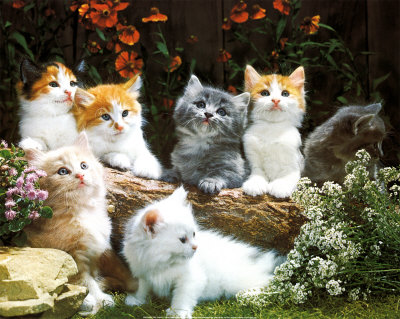
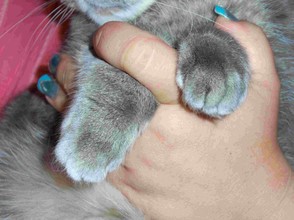
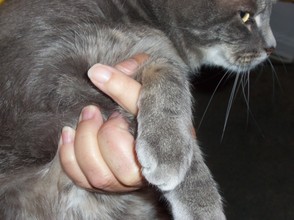
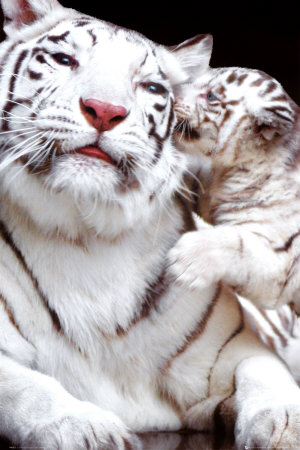


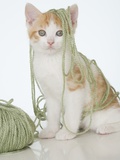
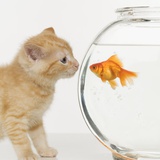

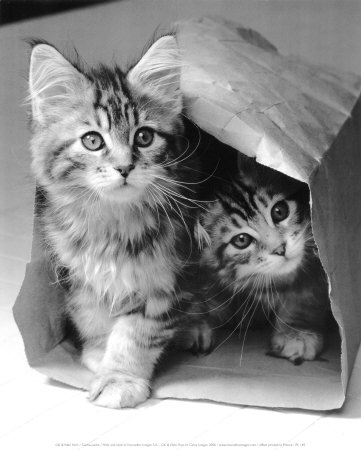
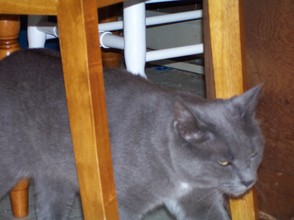

 Fruit and vegetable juice or whole fruits and vegetables, which is better for youon 04/23/2013
Fruit and vegetable juice or whole fruits and vegetables, which is better for youon 04/23/2013
 How to use memory wire to create jewelryon 12/19/2012
How to use memory wire to create jewelryon 12/19/2012
 The Spriteon 11/27/2012
The Spriteon 11/27/2012
 How to keep your feline companions safe and content during the holiday seasonon 11/10/2012
How to keep your feline companions safe and content during the holiday seasonon 11/10/2012



Tell me about your cats
Thanks for telling us about Handsome, MBC, he sounds like a real winner. Cats like that are hard to find. Thanks for the comment.
My current cat is named Handsome and he is the BEST cat I've ever had. He's a feral tabby.
Jen, these little furry wonders can worm their way into your heart with a simple purr. I have had cats all my life and I never want to lose that--I am so glad you rescued Draco. I know he is happy there. Give him all the love you can (and the dogs can get some too LOL) Thanks for writing and commenting.
Loved reading this....We have a 5 month old neutered male DSH (tux). We rescued him at 8 weeks and he has been a crazy blessing every day. HE LOVES TO PLAY...and "hunt" moving fingers and feet. He likes to play a little rough sometimes. He will lay on his back, let you pet his chest and tummy, then BAM! He grabs your hand with all fours and starts to play bite. He has gotten MUCH better at NOT using his claws, and after his little play bites, he will immediately start licking where he "bit" you. He has 4 canine buddies, a pekingese, mini doxie, and a great dane...he naps with them during the day but prefers "his bed" (the extra pillow on my daughters bed) at night. His name is Draco...LOVE that lil guy!!
Thank you so much for that, katiem2, I appreciate the promotion. I read the article and it is great!
I love cats, this is a great page for anyone with cats. I will add this to my vet cost page as this is a very helpful guide to living with happy healthy cats. :)K
Same with us, usually the vet can give you a round figure based on the teeth (go figure), but they can't give exact years. Most of my kitties over the years have been rescues so I didn't know how old they were either. Thank you so much for reading and commenting.
Some of my family'scats have come to us as kittens. Others we have no idea how old they were. My cat is very old, but no one knows how old.